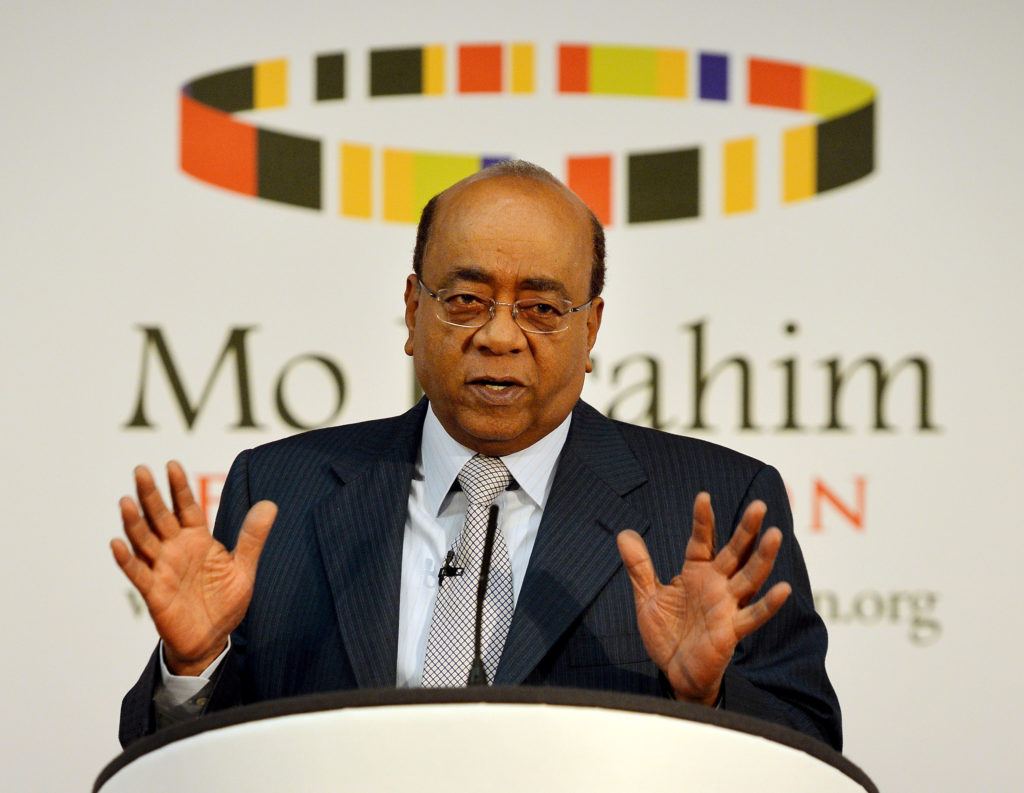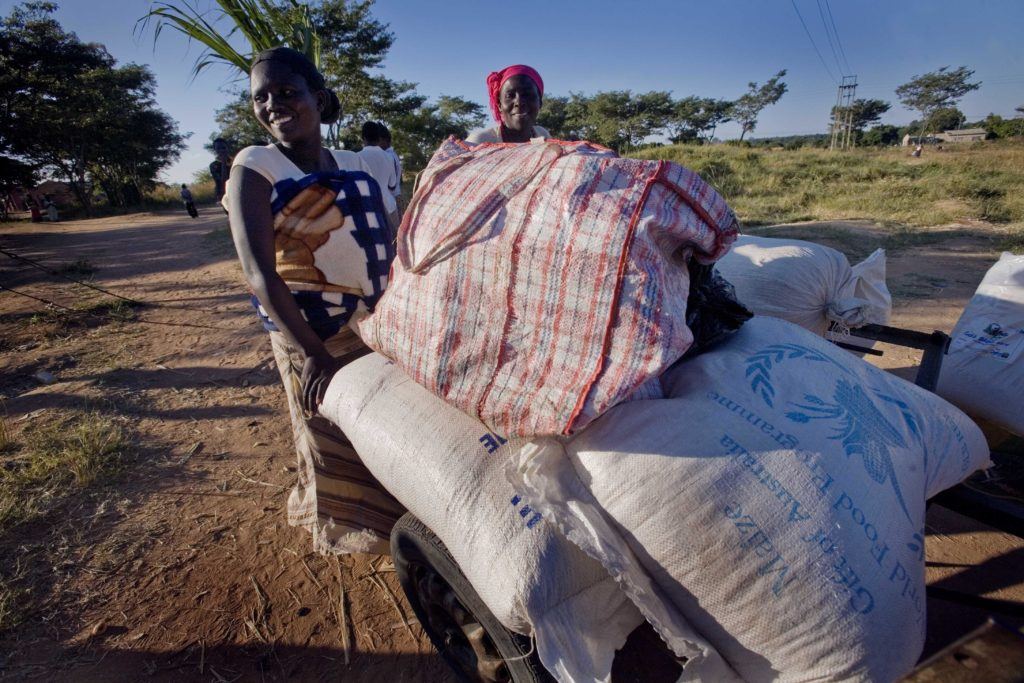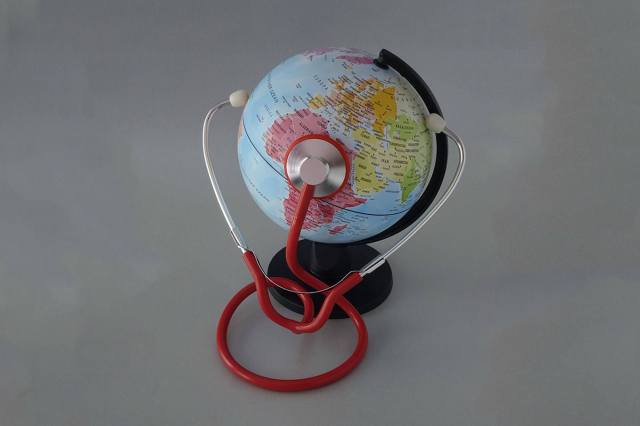The solution to Africa’s problems lies not in foreign aid but in decent governance (Credit Image: Sascha Steinach/DPA/PA Images)

Few people are in better position to observe the pace of political change across Africa than the Sudanese-born billionaire Mo Ibrahim. Flying around the continent as he built up his telecoms businesses, he was often struck by a shocking disparity between the lush fertility of the land below his plane and the poverty of its people. He concluded much of the problem was down to one thing: bad governance.
Ibrahim is right. This simple and obvious fact – that politics lies at root of many woes – is often ignored in the debate over development. So the entrepreneur chose to do something different to many other wealthy philanthropists, who routinely fall for fantasies that simplistic solutions imposed from outside can solve complex local issues. He decided to dedicate himself to promotion of good governance.
To encourage change, Ibrahim adopted a twin track strategy:
- First, he offered a multi-million pound prize to democratically-elected leaders who improve politics, strengthen human rights and then stand down voluntarily. Tellingly, there have been just four winners since it was inaugurated in 2006.
- Second, he oversees an annual index, taking data from multiple sources, that ranks the progress of nations.
The latest edition, just released, reveals worrying trends:
- Especially in some key nations such as Egypt, Ethiopia and Nigeria.
- Yes, most African countries are judged to have bettered governance over the past decade, but these improvements have slowed or even declined in some cases.
- Participation in politics and civil society seem to be slipping.
- Crime and political violence “remain on concerning negative trajectories”.
- Better health care is top of the class, but education progress on a continent with more than four in ten citizens aged under 15 has almost halted.
It is easy to overdo the pessimism and fall for damaging myths so prevalent in the West of a continent beset only by problems. There are 28 nations, led by those with best governance, that have improved economic opportunities for their citizens. Capitalism, consumerism and technology are delivering real change to people’s lives. Yet the overall deterioration in outlook underlines my view that torrents of Western aid are at best an irrelevance, and at worst corrosive by propping up despotic regimes while hampering democracy.

Many experts – especially those not beholden to the money-drenched aid sector – would agree. Foremost among them is Angus Deaton, winner of the 2015 Nobel Prize for Economics after a lifetime studying global poverty. Two years earlier he stunned the development world by demolishing ‘the aid illusion’ so adored by smug Western politicians and celebrities, pointing out that substantial aid flows achieve the opposite of their aims by compromising institutions, contaminating local politics and undermining democracy.
Laurence Chandy and Brina Seidel from the Brookings Institution calculated the global poverty gap – how much it would take to push everyone on the planet over the poverty line – was $66bn. This is less than half the $142.6bn given last year in development aid. No wonder there is controversy over such spending – and that we see fat cats creaming off cash intended for the poor. An industry created by naive Westerners has spawned an insidious form of colonialism, one that feeds vanities of politicians at home while fuelling conflict and corruption abroad. Just look at the latest scandal over Adam Smith International, the biggest specialist private aid contractor, with allegations of funding jihadists and fictitious people on the payroll.
There is increasing honesty from some about that aid being an instrument of control and leverage. It “extends our sphere of influence…gives us soft power which promotes our vital interests abroad,”’ wrote former Tory minister Nick Herbert last week. Yet African leaders have been largely happy to take free cash on offer from foreigners. So it was fascinating to hear a new narrative proposed by Ghana’s leader Nana Akufo-Addo, who won power a year ago amid concerns over a stumbling economy, sharply-rising debt and soaring corruption – especially since it was such heady stuff.
The business-minded president, setting out his vision for his continent’s future to the Royal Africa Society in London in October, challenged fellow African leaders to hasten democratic advances, respect liberties and move “beyond aid” since it was “unhealthy” for both donors and recipients. “We do not want to remain the beggars of the world,” he said. “We are not disclaiming aid, but we do want to discard a mind-set of dependency and living on handouts.”
Akufo-Addo argued foreign aid failed to deliver growth and attacked its dependency culture it created:
“This new generation of African leaders should help bring dignity and prosperity to our continent and its long-suffering peoples. We no longer want to offer the justification for those who want to be rude and abusive about Africa.…we have learnt from long and bitter experience that, no matter how generous the charity, we would remain and, indeed, we have remained poor.”
The president has since been reiterating this message back home. Last month, for example, he urged the Ghana Revenue Authority (GRA) to collect taxes effectively to help wean the nation off foreign aid. “We should become like all the progressive countries in the world, a country that depends on its own resources to buttress its own development, and not a country going around cap in hand begging,” he said.

This stance offers a significant change. And he is not alone in saying such things. Paul Kagame, the thuggish Rwandan president, proposed a deadline for his nation to stop relying on donors and is leading the African Union’s push to wean itself from foreign funders. But the arguments carry more weight coming from a democrat, not an autocrat – especially the leader of a middle income nation seen as a standard-bearer in sub-Saharan Africa, the first to win independence and holder of a series of peaceful elections since 1992.
To wean a country off the toxic teat of aid takes more than just patriotic pride, even in a country such as Ghana that has reduced dependency. The concept requires a shift in political culture, one that forces elected leaders to focus more on serving domestic audiences, rather than foreign donors. As one impressed British diplomat told me, Akufo-Addo’s stance has potential to strengthen self-belief, increase accountability and deepen democracy – especially if backed publicly and privately by his ministers.
There are many ways aid corroded Africa.
It has fanned conflict and corruption.
It distorted government priorities to satisfy donors.
It calcified public services with pointless bureaucracy to churn out panglossian reports.
It fuelled disturbing false narratives of white saviours and infantilised native peoples.
It funded waves of new colonialists driving around in costly jeeps telling locals what they need.
And it even wrecked the image, ensuring many Westerners are scared to visit a continent of 54 diverse nations that they constantly see portrayed as a place of fighting and famine.
As Mo Ibrahim recently told the Financial Times, African politics demonstrates all too often that “it is the head of the fish that goes rotten first.” So how good to hear the president of Ghana demand that his country moves beyond aid. The hope is that this display of leadership and self-confidence, like previous political trends, fans out from Accra across the continent. And perhaps even that his bold words about welfare dependency and handouts are heard in Westminster.










Join the discussion
Join like minded readers that support our journalism by becoming a paid subscriber
To join the discussion in the comments, become a paid subscriber.
Join like minded readers that support our journalism, read unlimited articles and enjoy other subscriber-only benefits.
Subscribe